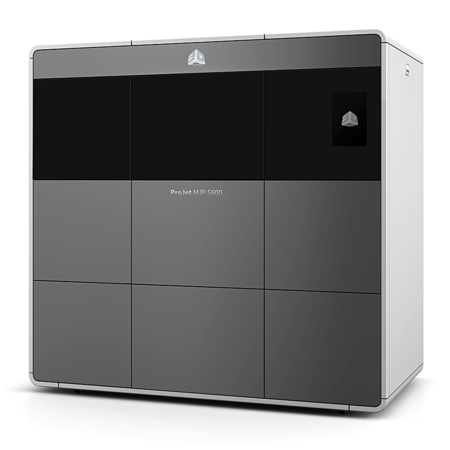“This technology has introduced many improvements to the company, such as accelerated viewing of sole sets before tooling construction and a sped up matrix manufacturing process since we no longer need to queue products for mold and die or mockup manufacturing.” --Thiago Faleiros, Commercial Director, Macboot
For over 20 years, the leading Brazilian footwear company Macboot® has progressed along a steady growth- and achievement-based trajectory to distinguish itself from its competitors. Built on the human-environmental philosophy of its founder and current president Marco Aurélio Silva, Macboot has a history of sustainability that extends past many mainstream initiatives and which sets Macboot apart as an industry pioneer.
Paired with its sustainability efforts, Macboot has begun to incorporate advanced technologies in its design and manufacturing processes to enhance its products through innovation. These technologies have not only improved production, but improved final product performance through features like waterproofing increased ventilation and shielding for durability, among others.
Launching products with an innovative design, quick turnaround, and competitive pricing has always been a challenge in footwear. According to Thiago Faleiros, Macboot’s commercial director, Macboot used to have no software supporting its efforts and all aspects of the design and prototyping stages were done manually. “As a result, we frequently dealt with inaccuracies and suffered production losses in both time and money,” Faleiros said.
To avoid these losses, Macboot sought 3D printing solutions to meet its needs. According to Faleiros, Macboot wanted to find solutions that would advance its development culture.
After evaluating the available technologies, Macboot decided to acquire its solutions through Seacam, a leading Brazilian distributor of product development technologies, including 3D printers from 3D Systems. These solutions are now used in all phases of Macboot’s production chain, from model-making to manufacturing.
After selecting the necessary 3D software, Macboot investigated 3D printers and decided on the ProJet® MJP (Multi Jet printing) by 3D Systems. Macboot uses this machine to quickly and accurately produce durable plastic parts in-house for functional design testing. “This technology has introduced many improvements to the company, such as accelerated viewing of sole sets before tooling construction and a sped up matrix manufacturing process since we no longer need to queue products for mold and die or mockup manufacturing,” Faleiros said. “We also have enhanced confidentiality and the ability to better safeguard our designs by no longer needing to work outside the company,” Macboot says it has found its MJP printer to be hugely practical. “3D printing is fully automated, so we can spend our time on other work, and only re-involve ourselves with the prototype once it’s finished,” Faleiros said.
“With the help of these new technologies, our time benchmark and development costs have been remarkably reduced,” Faleiros said. “Before, we talked in days. Now we talk in hours. The power and flexibility of our 3D software, coupled with the speed and accuracy of the ProJet MJP has allowed us to challenge our designers to really push the limits of their creativity to develop and test numerous alternate products without sacrificing time to market.”

